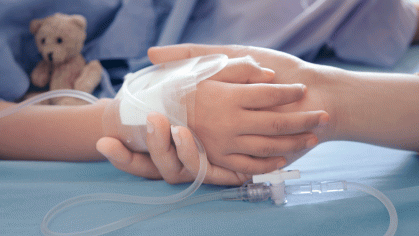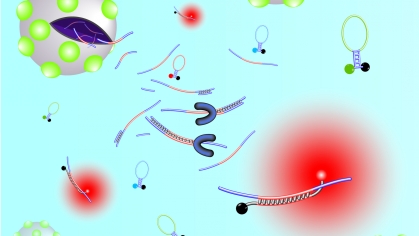New Jersey Health Data Project Approves Research Addressing Population Health Priorities

The studies will be led by investigators at academic institutions and state government
Six teams will receive data to study issues like opioid overdose and misuse epidemics and maternal and child health.
The governing board of the New Jersey Integrated Population Health Data (iPHD) Project in December approved the release of data – along with pilot funding and data access fee waivers – for six research proposals to study the top challenges of the state’s population health.
These projects, submitted in the 2023 application cycle, will be led by investigators at institutions in both academia and state government.
The iPHD informs policymaking and strengthens population health research by integrating New Jersey health and other administrative data, allowing researchers to study priority issues for the state. Each project will address one or more of the iPHD's four research priorities:
- Addressing the opioid epidemic
- Improving maternal and infant health
- Addressing the social determinants of health
- Supporting the response to COVID-19 and other public health emergencies
Under the direction of the governing board and working closely with the New Jersey Department of Health, Rutgers Center for State Health Policy (CSHP) at Rutgers Health is responsible for operating the iPHD. The Department of Health is supporting the implementation of the iPHD with funding and access to the five, state-focused data sets available to successful applicants. These include:
- Birth data
- Mortality data
- Hospital discharge data
- Communicable Disease Reporting and Surveillance System data
- Emergency medical services data
“Since we launched the iPHD in June 2022, awareness and enthusiasm for the potential of the iPHD has grown,” said Joel Cantor, Distinguished Professor, director of the CSHP and ex-officio member of the iPHD governing board. “In the last year, we doubled the roster of experts on the project’s Research Advisory Committee and increased the number of applications for data access by half. With each application cycle, the iPHD is continuing to build an active, engaged community of researchers and health policy makers.”
The project builds on the long-standing relationship between Rutgers University and New Jersey state agencies, including the Department of Health.
“This is an exciting year for the iPHD,” said Rachel Hammond, chief data privacy officer at the Department of Health and iPHD governing board chair. “In addition to approving six new projects, work from the first round of data awardees will begin being published this year, marking true progress toward realizing the iPHD’s goal of improving the health and well-being of New Jersey residents through rigorous, evidence-informed research.”
This cycle’s awardees will receive data to support the following research projects:
- Stephen Crystal with the Rutgers Center for Health Services Research will use the iPHD’s unique data linkages to explore opioid overdose patterns across settings and communities. “The CHSR team is expanding its current analysis of the impact of the opioid crisis on New Jersey,” Crystal said. “Linking emergency medical services data to additional iPHD data sets will allow us to investigate patterns of utilization not captured in hospitalization and death data, which we hope will paint a more complete picture of opioid use disorder-related health care service utilization across the state.”
- Kelly Levy with the New Jersey Office of the Attorney General will investigate the impact of a statewide intervention on drug overdose deaths among criminal defendants in the state. “We are committed to ensuring that opioid settlement funds are used towards programs that save lives, and the access to public health data granted through the iPHD award will help us succeed,” said Attorney General Matthew J. Platkin. “We are in the final stages of rolling out Opt for Help and Hope – New Jersey’s first statewide initiative focused on offering municipal court defendants support services for substance use disorder – in six municipal courts across the state. Being able to link public health data to criminal justice data will not only enable our research partners at Johns Hopkins Bloomberg School of Public Health to more effectively evaluate the program’s outcomes, but it will enable us to better evaluate current and future initiatives across the Department of Law and Public safety.”
- Sze Yan Liu with the Department of Public Health at Montclair State University will research the impact of severe maternal morbidity on the hospitalization of mothers and children one year after birth. “The iPHD presents an exciting opportunity to study the long-term effects of important exposures," Liu said. “Our project relies on the iPHD's unique ability to link birth and hospital records. We will use this linkage to explore the connection between severe maternal health problems and the likelihood of mother and child hospitalization or emergency department visits.” Liu said she hopes the work will lead to new approaches for minimizing the long-term adverse effects of severe maternal morbidity.
- Elizabeth Suarez with the Rutgers Center for Pharmacoepidemiology and Treatment Science will investigate opioid-related overdoses and mortality among pregnant and postpartum individuals. “Opioid overdose is an important contributor to maternal mortality in New Jersey,” Suarez said. Access to iPHD data will allow her to assess the occurrence of overdose events relative to pregnancy, as well as the risk factors for overdoses. These outcomes, she said, “are all crucial data points for developing prevention strategies.”
- Grant Victor with the Rutgers School of Social Work will use linked administrative data to perform surveillance of overdosing and other drug-related adverse health events. "Access to emergency medical services and mortality data from the iPHD will allow my team to identify the proportion of New Jerseyans that experiences multiple nonfatal overdose events, as well as those among them who eventually die for any reason,” Victor said. Understanding the factors that predict outcomes related to drug use-related morbidity and mortality, he said, can inform where resources are situated to mitigate the rate of fatal overdoses.
- Xiao Xu with the Yale University School of Medicine will research the use of a preventive procedure, prophylactic salpingectomy, performed during a post-birth sterilization. “Recent evidence suggests that most ovarian cancers originate from the fallopian tubes, rather than from the ovaries,” Xu said. "Replacing tubal ligation with salpingectomy, then, offers the dual benefit of contraception and ovarian cancer risk reduction.” Her team will use New Jersey hospital discharge data from the iPHD to identify patterns in the use of this procedure and examine the factors influencing its utilization.
The 2024 iPHD application cycles began Feb. 7 with the release of the request for applications. Researchers interested in applying for data access must submit a letter of intent to the center no later than Feb. 28. Visit the iPHD website to learn more about these changes and the latest cohort of approved research projects.
Limited funding will be available to support up to four full or partial waivers of data access fees (up to $25,000) for projects led by researchers from New Jersey. Researchers from institutions outside of New Jersey are eligible to apply for data access but aren’t eligible for fee waivers.



